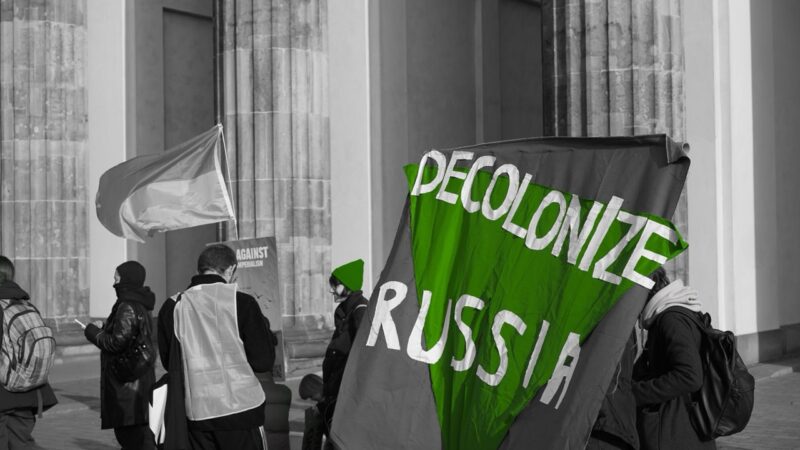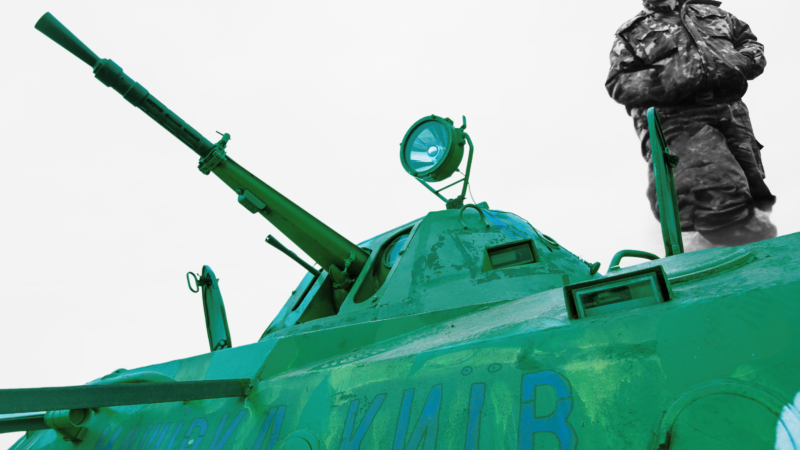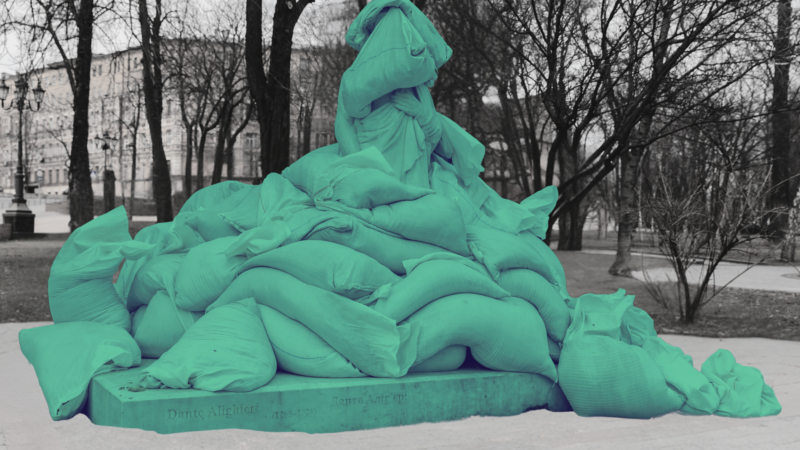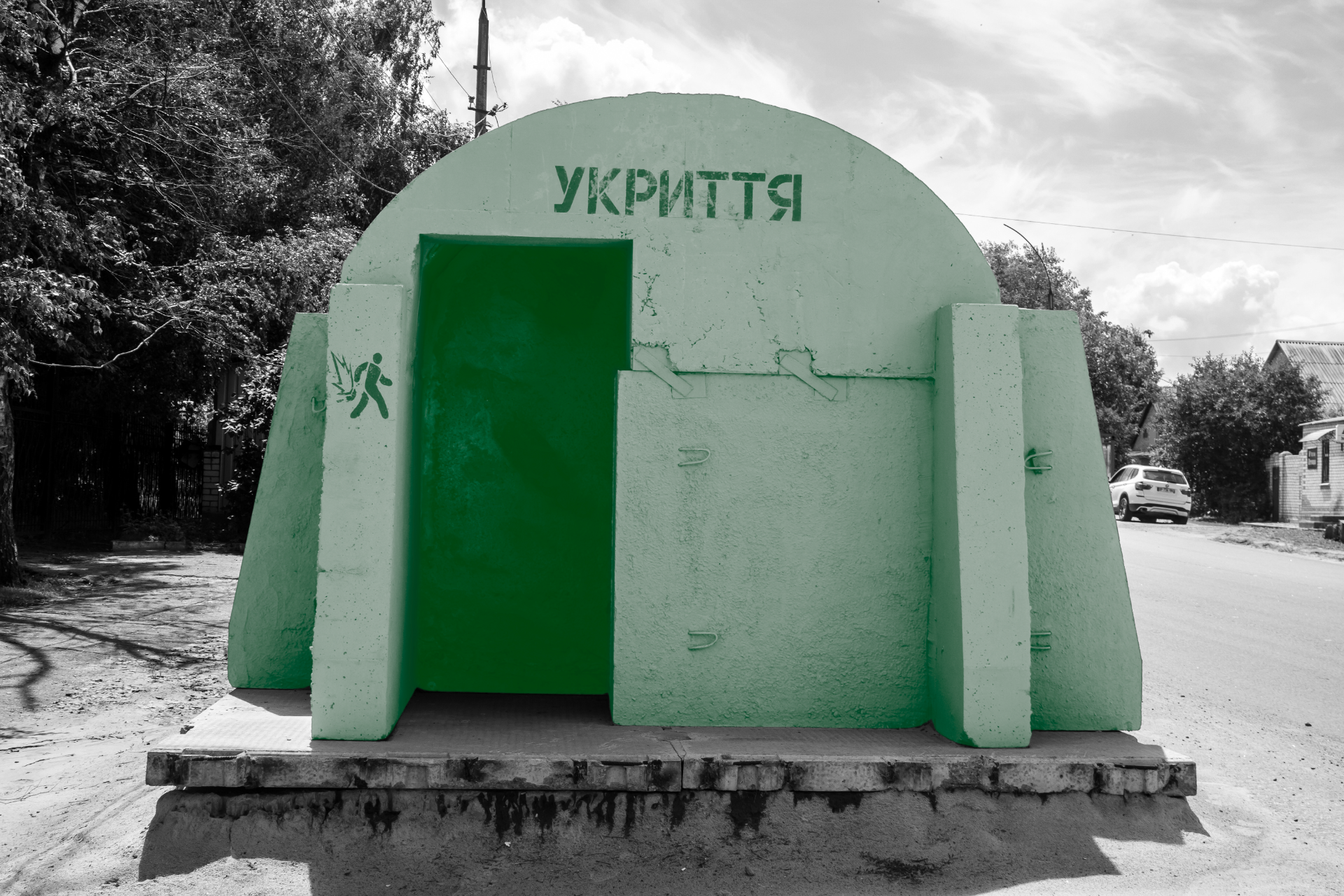How to punish Putin and Lukashenko: Ample evidence of criminal aggression against Ukraine
Since March 2022, 46 OSCE participating states, including Ukraine, have activated the OSCE’s Moscow Mechanism on Russia’s Invasion of Ukraine.
The Moscow Mechanism is a formal procedure established within the OSCE that allows for the deployment of a short-term international fact-finding mission to address a specific human rights issue in the OSCE region. This mechanism is so-called because it was adopted during a meeting of the Conference on Security and Cooperation in Europe that was held in 1991 in Moscow.
According to the decision of the OSCE participating states, the present application of the Moscow Mechanism is aimed at “studying the impact on human rights and humanitarian consequences of the invasion [by] the Russian Federation and the war supported by Belarus on the people of Ukraine, within internationally recognized borders and territorial waters of Ukraine.”
Accordingly, a group of international experts was tasked with:
- establishing the facts and circumstances related to possible violations of OSCE commitments and violations and abuses of international human rights law and international humanitarian law;
- establishing the facts and circumstances of possible war crimes and crimes against humanity, including deliberate and indiscriminate attacks on civilians and civilian infrastructure; and
- collecting, consolidating, and analyzing information for presentation through appropriate and national prosecution mechanisms, including regional and international courts or tribunals that have or will have jurisdiction over these matters in the future.
The Mission to Ukraine, established under the Moscow Mechanism, began its work on 15 March 2022.
“Moscow Mechanism” without Moscow
On 13 April 2022 the Expert Mission of the OSCE Moscow Mechanism (hereafter referred to as the Mission), conducted by Professors Wolfgang Benedek, Veronica Bilkova, and Marco Sassoli, presented its findings to the OSCE Permanent Council, collected in a document entitled Report on Violations of International Humanitarian and Human Rights Law, War Crimes, and Crimes Against Humanity Committed in Ukraine since 24 February 2022.
This nearly 100-page document captures strong evidence of the sheer number of crimes committed by Russia in Ukraine.
The Mission’s report was prepared without direct access having been provided for experts to the war zone or the temporarily occupied territory of Ukraine. The Mission could not enter Ukrainian territory because the OSCE advised the experts not to visit Ukraine for security reasons.
The events described in the Report took place from 24 February to 1 April 2022. Therefore, the report does not cover any facts of crimes that took place in territories temporarily occupied by Russia, as that evidence was discovered after the official completion of the Report.
Significant is the fact that Russia refused to cooperate with the OSCE Expert Mission; it told the Mission that it considers the “Moscow Mechanism” to be largely outdated and redundant, so it refused to appoint a liaison officer.
The Mission determined that since both Russia and Ukraine are independent states, the hostilities between them are governed by international humanitarian law and classified as an “international armed conflict.”
On the other hand, NATO member states and the Republic of Belarus are not recognized as parties to the “international armed conflict” between Russia and Ukraine. However, both Belarus and NATO member states have an increased responsibility to “ensure respect” on the part of parties they support for international law.
According to the Mission, NATO nations are not parties merely because they supply weapons or pass on intelligence information to Ukraine.
Meanwhile, although Belarus does allow its territory to be used for Russian attacks on Ukraine, as of 1 April the Mission considered that it is not a party to the “international armed conflict” as long as it “does not itself commit acts of violence or other acts that would constitute direct participation in the hostilities by persons attributable to Belarus.”
At the same time, the Ukrainian side rejected the Report insofar as its qualification of the non-aggressor role of Belarus, referring instead to Article 3 of the 1974 UN General Assembly Resolution No. 3314 “On aggression” (hereinafter Resolution 3314). Among the actions in Article 3 of the resolution there is paragraph f: “The action of a State in allowing its territory, which it has placed at the disposal of another State, to be used by that other State for perpetrating an act of aggression against a third State.”
Also crucial for Ukraine’s position in international courts is that the Report acknowledges the Russian Federation’s occupation of certain districts of Donetsk and Luhansk oblasts of Ukraine since 2014: “The Luhansk and Donetsk republics are under full Russian control, so the latter is responsible for their behavior.”
The Report notes that the Mission identified clear patterns of violations of international humanitarian law by the Russian armed forces on many fronts and came to the general conclusion that Russia did not take all possible precautionary measures to avoid civilian casualties.
The Mission found that even if the targets were hypothetically military ones, it was highly unlikely that the indisputable use of cluster munitions, long-range munitions such as aircraft bombs or missiles, unguided missiles, artillery and mortars, multiple rocket launchers, and simple bombs fired from aircraft, as well as the possible use of incendiary weapons, white phosphorus, and thermobaric or vacuum bombs in densely populated areas, were each case the only possible choice for the military command—especially given the wide range of weapons available to Russia.
The Mission was unable to draw a general conclusion as to whether Russia’s attacks on Ukraine could be qualified as a large-scale or systematic attack on the civilian population. However, the Report notes that some models of violence that significantly violate human rights are classified as crimes against humanity.
As with the war crimes, the OSCE Mission has not been able to identify specific individuals who could be held responsible for such crimes, either as executants or commanders. This identification will be the task of other international or national authorities, such as national courts and the International Criminal Court.
How the Report of the OSCE Mission can be used in international mechanisms to protect the interests of Ukraine
The information documented in the OSCE Mission’s Report will undoubtedly be used by national, regional, and international institutions that have or will have future jurisdiction over the war crimes of Russia and Belarus and their military-political leadership.
This document should be included in the system of actions of international and national institutions to counter Russian aggression.
The key universal international document regulating what actions, regardless of the presence or absence of a declaration of war, are qualified in international law as aggression is the UN General Assembly Resolution 3314.
In accordance with international law, the military actions of the armed forces of the Russian Federation committed since 24 February, by order of its own military-political leadership, qualify as an act of aggression against a sovereign state.
Belarus, in turn, played a key role in Russia’s attack on Ukraine. Belarusan military and civilian infrastructure was in fact handed over to Russia and used by Russia to strike and directly invade Ukraine. According to the norms of international law, these actions are equated to involvement in a military conflict on the side of one of the parties.
Pursuant to the above-mentioned Resolution 3314, which defines aggression as the “use of force by a state against the sovereignty, territorial integrity, or political independence of another state,” the UN General Assembly on 2 March adopted a resolution condemning Russia’s invasion of Ukraine and calling on Moscow to withdraw immediately.
The UN demanded that Russia not only stop the invasion but also completely and unconditionally withdraw all its armed forces from the territory of Ukraine within its internationally recognized borders. The resolution condemns the decision adopted by the Russian Federation on 21 February concerning the status of certain districts of Donetsk and Luhansk oblasts of Ukraine, which violates the territorial integrity and sovereignty of Ukraine and contradicts the principles of the UN Charter.
The resolution of 2 March condemns, among other things, Belarus’ involvement in this illegal use of force against Ukraine and calls on Belarus to hold to its international obligations.
Afterwards, on 24 March the UN General Assembly adopted an additional resolution calling on Russia to end the war against Ukraine immediately. This resolution also calls for civilians in Ukraine to be granted access to assistance and protection and criticizes Russia for creating a dire humanitarian situation after a month of its escalated military invasion.
At the international level, based on its resolution dated 4 March 2022 the UN Human Rights Council established the Independent International Commission of Inquiry into Ukraine, to ensure accountability for human rights and international humanitarian law violations related to Russia’s aggression against Ukraine. Its mandate includes investigating and gathering evidence, as well as formulating recommendations for accountability.
Furthermore, a mission of the Office of the United Nations High Commissioner for Human Rights is also active today in Ukraine, investigating testimonies of violations of international human rights law and international humanitarian law.
At this stage of the war, it is important for Ukraine not only to lay the foundations for individual responsibility of the political leadership of Russia and Belarus but also to apply the instruments of international legal responsibility for these war crimes, with the imposition of mandatory reparations and restitution.
Today, the sanctions imposed by the United States, the European Union, and their allies have blocked Russia’s access to some of its gold and foreign exchange reserves: Russia cannot use nearly half of them—about $300 billion, which is about half of the aggressor’s foreign reserves.
At present, of course it is impossible to count on Russia’s voluntary payment of reparations in favour of Ukraine, even if it loses. Thus, the most effective legal way to compensate for damages is for Ukraine to submit claims against Russia in the proper international courts. For their part, the international courts are obliged to consider Ukraine’s lawsuits against both Russia and Belarus.
In this regard, in late February Ukraine filed a lawsuit against Russia in the International Court of Justice in The Hague (hereinafter the UN Court), which has jurisdiction over disputes between states.
On 16 March the UN Court instituted provisional measures against Russia in accordance with the 1948 Convention on the Prevention and Punishment of the Crime of Genocide (the Genocide Convention).
Worthy of note is the near-unanimity between the judges in the decision on 6 March; of the 15 judges appointed in the case, only the Russian and Chinese judges voted against the provisional measures. However, the UN Court has clearly outlined the “narrow limitation” of its jurisdiction in a case, initiated by Ukraine only, under the Genocide Convention.
In the order dated 16 March to halt the escalation of the conflict, the court stipulates two measures: The first orders Russia to “suspend immediately the military operations that it commenced on 24 February 2022 in the territory of Ukraine.” The second measure orders Russia to “ensure that any military or irregular armed units which may be directed or supported by it, as well as any organizations and persons which may be subject to its control or direction, take no steps in furtherance of the military operations referred to in point (1) above.”
Thus, the order applies to any military or armed units controlled or supported by Russia, as well as to any organizations and persons subject to its control or leadership.
If we use this court provision and prove that the military and civilian infrastructure of Belarus was de facto transferred to Russian rule and used to support the fighting in Ukraine that led to the crime of genocide, Belarus can also be found guilty.
On the other hand, interpretation of the term “support” carries the risk of extending to the principle of “state responsibility” in international law. Given the ongoing discussions between Ukraine’s allies about what kind of support they can provide to Ukraine without crossing the line of “involvement” in hostilities, we should carefully develop a strategy of legal prosecution of the aggressor so as not to harm active military-technical assistance.
In view of the above, the decision of the UN Court of Justice of 16 March should be used by Ukraine to apply to direct participation or sponsorship of the conflict by Russia through its “proxies” (including the so-called “LDPR,” the unrecognized Transnistrian Moldavian Republic, and Belarus) by filing new lawsuits against the aggressor and its accomplice (Belarus).
As the UN Court decides on the responsibility of states, not individuals, its interim injunction will not be crucial in the ongoing practical effort to gather evidence for use in future war crimes investigations.
Unfortunately, due to the predictable contrary position of Russia and China, the UN Security Council remains incapable of adopting resolutions under the UN Charter on threats to international peace and security.
In my opinion, given the significant number of established facts of aggression, bolstered by the OSCE Mission’s Report and the UN Court order on provisional measures dated 16 March, Ukraine should initiate a separate lawsuit against Belarus, limiting it to two international conventions: the Genocide Convention and the Convention on the Suppression of the Financing of Terrorism. Importantly, both conventions have been ratified by Belarus and Ukraine, and the UN Court can make a decision on their basis without the defendant’s consent.
Having received a court decision in its favour, Ukraine would be able to initiate Belarus’ inclusion in the United States’ list of terrorist sponsors. As a result, the Minsk regime, all state-owned companies, and most private businesses would be at risk of being subjected to increased international sanctions and trade restrictions (from the control of exports of dual-use goods to a ban on foreign aid). The inevitable chain reaction of US allies to such a decision would unquestionably compound the destructive consequences of the sanctions. By the way, there are currently only four countries that the United States has recognized as sponsors of terrorism: North Korea, Iran, Cuba, and Syria.
The next tool to bring the leadership of Russia and Belarus to justice is Ukraine’s work with the International Criminal Court in The Hague (hereinafter the ICC).
As of April this year, the ICC has launched an investigation into Russia’s aggression on the basis of referrals from 43 member states of the Rome Statute. It is also based on a preliminary investigation into Ukraine’s two declarations in 2014 and 2015, according to which Ukraine recognized the court’s jurisdiction over war crimes and crimes against humanity committed on its territory.
In late February, Lithuania was the first to ask the ICC to launch an investigation into possible war crimes committed by Russia and Belarus in Ukraine.
In early March 2022, the ICC prosecutor Karim Khan launched an investigation into war crimes committed in Ukraine during the Russian aggression after 24 February. In April Khan personally visited the occupied territories of Ukraine, where he was convinced a number of war crimes were committed.
An important step is the start of work of the ICC Investigative Group in Ukraine—which is already gathering evidence and facts of war crimes in our country, together with the law enforcement agencies of Ukraine, Poland, and Lithuania.
However, an obstacle to the effective prosecution by the ICC of persons guilty of aggression in Ukraine is the fact that the citizens of states that have not ratified the Rome Statute (including Russia and Belarus) can be prosecuted only on the grounds of a directive of / query from the UN Security Council, in which Russia and China are permanent members.
In connection to this collision, the next important line of action of Ukrainian justiсe is cooperation with the national law enforcement agencies of allied states. After all, those responsible for crimes of aggression can be tried in both the ICC and the national courts of states that have enshrined this international crime in their criminal codes.
There are already positive moves in this direction. As noted above, Lithuania is a leader on the legal front in prosecuting war criminals from Russia and Belarus. According to the Lithuanian Ministry of Justice, its Prosecutor General’s Office is assessing the fact that Belarus has provided its territory for planning and carrying out military attacks against Ukraine and acts of aggression against Ukraine committed by the heads of state of Russia and Belarus.
In addition, the German prosecutor general has launched an investigation into war crimes committed in Ukraine. Similar investigations, according to currently available information, have also been launched by the prosecutor’s offices of France, Italy, and Poland.
As part of these proceedings, the prosecutor’s offices of foreign states, with the procedural assistance of Ukraine, will investigate the use of cluster bombs by the Russian occupiers in strikes on residential buildings and civilian infrastructure, gas pipelines, energy facilities, and radioactive waste disposal sites.
In continuation of these measures, it is necessary to emphasize Belarus’ complicity in providing territory for the invading Russian occupation forces, launching missile and air strikes on Ukraine’s civilian infrastructure from the north, as evidenced by numerous Maxar satellite images and photo and video recordings.
To ensure the effective prosecution of war criminals, Ukraine also has the opportunity to cooperate with EU member states through a mechanism called the “European Arrest Warrant.” It requires all EU member states to detain and transfer a suspected or convicted person to the issuing country. European states can also cooperate in obtaining evidence to help Ukraine.
At the level of national jurisdictions, the Prosecutor General’s Office of Ukraine has launched an investigation into war crimes and crimes against humanity committed in our territory and against our citizens. Ukraine should initiate an investigation into the organization, participation, and facilitation of war crimes in Ukraine against specific officials of Russia and Belarus. The materials of this investigation can be transferred to the joint investigation group of Lithuania, Poland, and Ukraine, whose establishment was supported by Eurojust, to optimize the legalization of procedural documents in the EU.
The conclusions of the OSCE Mission’s Report will also be relevant to cases referred to the European Court of Human Rights. Following the withdrawal of the Russian Federation from the Council of Europe on 16 March 2022, this court remains competent in proceeding with cases against Russia based on facts that took place before 16 September 2022. According to the case law of the European Court of Human Rights, there is liability for violations that occur in areas that are under the effective control of the contracting party at its state border.
Unlike Russia, Belarus was not a member of the Council of Europe and has never come under the jurisdiction of the European Court of Human Rights.
Thus, in the case of the current military-political leadership of Russia and Belarus, there are two main ways to bring them to justice for their acts of aggression against Ukraine.
The first option is to hold the Russian president Vladimir Putin and his military command responsible for organizing the committing of war crimes in Ukraine. On the part of the current Belarusian leadership, there are good reasons to claim in court that by providing the infrastructure for aggression, the Belarusan authorities knew in advance and deliberately assisted the Russian attacks on civilians. These crimes, by definition, could be tried in the International Criminal Court. In addition, they may be prosecuted by Ukraine or other national authorities under the principle of universal jurisdiction or under the jurisdiction delegated by Ukraine to certain allied countries (such as the agreement between Ukraine and the Netherlands on the International Mission to investigate the 2014 Boeing MH17 crash over the Donbas).
The second option is to prosecute involvement in the crime of aggression or aiding and abetting the committing of a crime. Since the ICC has no jurisdiction to prosecute Putin and Lukashenko for this crime—and since neither Russia nor Belarus have ratified the Rome Statute, which is a prerequisite for prosecuting aggression in this court—a new international tribunal for this purpose needs to be created (similar to the Nuremberg and Tokyo Processes after World War II).
It is important to remember that as long as Putin and Lukashenko remain in power, domestic prosecution will be forbidden by their heads of state immunity.
General conclusions
The OSCE mission report has great political and legal importance, as it grants international recognition to numerous facts of crimes and violations committed by the Russian occupiers in Ukraine.
The Report’s conclusions make it clear that Russia’s violations of international law, committed with Belarus’ assistance, have reached a scale that Europe has not seen since the end of World War II.
The US Representative to the OSCE, Michael Carpenter, said 45 participating states launched the OSCE Moscow Mechanism to document and gather evidence of possible human rights violations, violations of international humanitarian law, and possible war crimes and crimes against humanity. According to him, these facts could be further transferred to other international institutions, including the International Criminal Court and the UN Court.
Putin and Lukashenko are certainly no “pioneers” among the leaders of states accused of acts of aggression against a neighbouring state. In a recent example, in 2012 a UN-supported tribunal found former Liberian President Charles Taylor guilty of aiding and abetting war crimes in Sierra Leone.
An institution such as the International Criminal Tribunal for the Former Yugoslavia, established in 1993 to prosecute those responsible for violations of international humanitarian law in the former Yugoslavia, is also well known. Symbolically, this tribunal was the result of the application of the OSCE Moscow Mechanism in 1992 to events in Croatia and Bosnia.
At the same time, the OSCE Mission’s Report could be an important step in compensating Ukraine for damages caused by the war by recouping from the property of the aggressor, its accomplice states, or related companies.
It should be understood that compensation for multibillion-dollar losses, as well as the prospects of Russian and Belarusian regime leaders appearing in court, depends on the ability of Ukraine and international institutions to document evidence of involvement in war crimes. This is a long-term challenge for the Ukrainian government, civil society, and entire law enforcement system.





